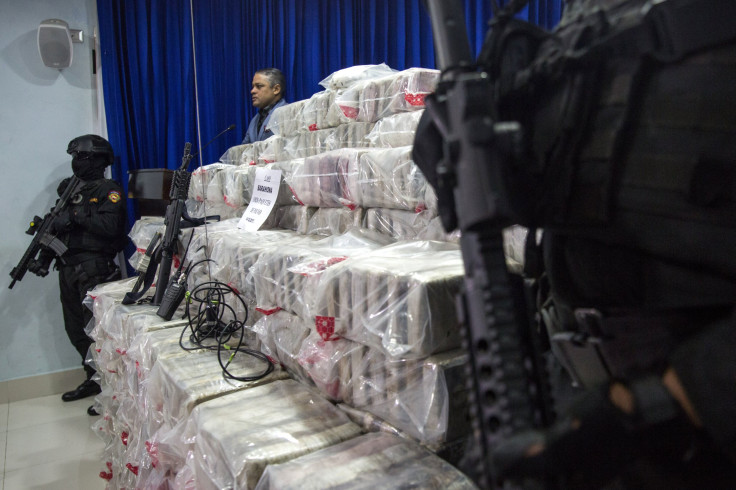5 Arrested After 14-Month-Long Probe Into Russian Embassy Cocaine Smuggling

An Argentine police official and a former Russian diplomat were among the five people arrested following a 14-month-long investigation, which started after hundreds of pounds of cocaine were found at the Russian Embassy in Buenos Aires, Argentina, in 2016, authorities said Thursday.
According to a report by the New York Times, Patricia Bullrich, Argentina’s minister of security, reportedly said during a news conference Thursday, “We have dismantled an international cocaine trafficking organization operating between Argentina, Russia and Germany.”
Bullrich said that the 850 pounds of cocaine discovered at a school situated on the premises of the Russian Embassy in December 2016 led to a joint investigation by the Argentina border guards, the police authorities of Buenos Aires and the Russian Interior Ministry. The cocaine was valued at more than $60 million.
The report said that Viktor Koronelli, the Russian ambassador to Argentina, along with three other members of the Russia’s Federal Security Service informed Bullrich on Dec. 13, 2016 regarding 16 luggage pieces which they thought contained drugs.
Koronelli and Bullrich then gave the keys to enter the school premises to the Argentine border guards. Bullrich said the guards entered the school at 2 a.m. ART (12 a.m. EST) and they confirmed that there was cocaine inside the bags. After that they took the bag to another location and filled the bags with flour, which they had bought from a food store outside the capital city, at 3 a.m. ART (1 a.m. EST).
The guards then came back to the embassy after an hour with the bags, filled with flour, and had tracking devices installed in them, Bullrich said.
Bullrich also said, the drug traffickers tried to move the drugs — not knowing that it was replaced by flour — on numerous occasions. They were finally able move it via a shipment made in December 2017 as a diplomatic luggage on an official Russian plane.
“The drugs never traveled to Russia — only the flour,” said Bullrich.
Bullrich said three customs agents of Argentina went to Russia in order to track the shipment and two Russians, Ishtimir Khudzhmov and Vladimir Kalmykov, were arrested after they came to pick up the shipment.
Among the other people involved in the drug trafficking, one unidentified person was referred to as “Mr. K” by Bullrich. “Mr. K,” who gave the drugs to a Russian embassy agent in Argentina was absconding somewhere in Germany and there is an international order for his arrest, she said.
The Russian embassy contact of “Mr. K” was Ali Abyanov, a former embassy official who was detained at his residence in Moscow on Thursday, said Bullrich. Abyanov assisted in the planning of the shipment and was also helped by two Russian-Argentine citizens, the report said.
According to a report by ABC News, the police authorities, Wednesday arrested a Russian-Argentine citizen, Alexander Chikalo who was suspected to be overlooking the logsitics department. They also detained, police officer of Beunos Aires Ivan Blizniouk who was suspected of giving contacts so that the shipment could pass the Argentine customs department.
© Copyright IBTimes 2025. All rights reserved.






















